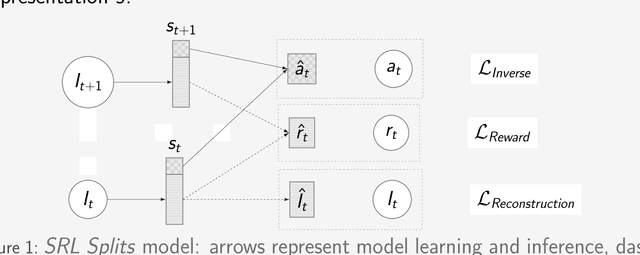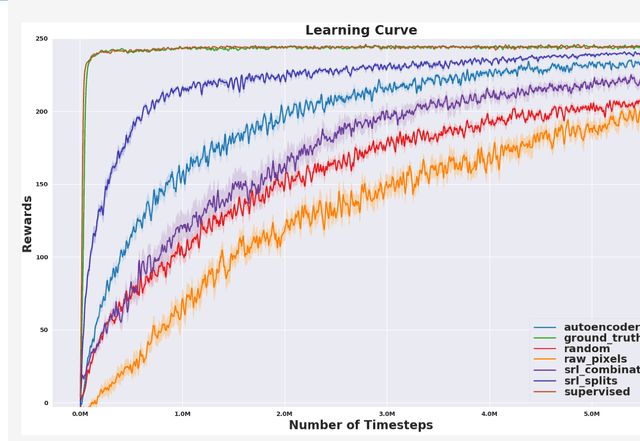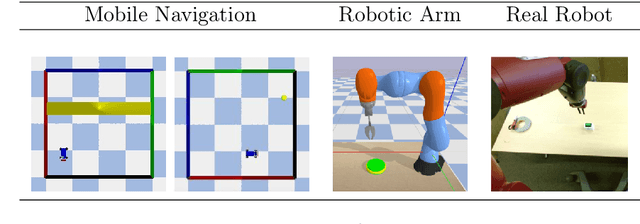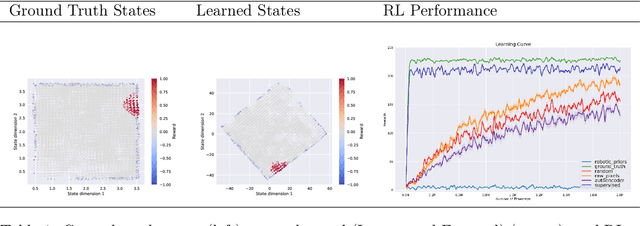Ashley Hill
Decoupling feature extraction from policy learning: assessing benefits of state representation learning in goal based robotics
Feb 03, 2019


Abstract:Scaling end-to-end reinforcement learning to control real robots from vision presents a series of challenges, in particular in terms of sample efficiency. Against end-to-end learning, state representation learning can help learn a compact, efficient and relevant representation of states that speeds up policy learning, reducing the number of samples needed, and that is easier to interpret. We evaluate several state representation learning methods on goal based robotics tasks and propose a new unsupervised model that stacks representations and combines strengths of several of these approaches. This method encodes all the relevant features, performs on par or better than end-to-end learning, and is robust to hyper-parameters change.
S-RL Toolbox: Environments, Datasets and Evaluation Metrics for State Representation Learning
Oct 10, 2018



Abstract:State representation learning aims at learning compact representations from raw observations in robotics and control applications. Approaches used for this objective are auto-encoders, learning forward models, inverse dynamics or learning using generic priors on the state characteristics. However, the diversity in applications and methods makes the field lack standard evaluation datasets, metrics and tasks. This paper provides a set of environments, data generators, robotic control tasks, metrics and tools to facilitate iterative state representation learning and evaluation in reinforcement learning settings.
 Add to Chrome
Add to Chrome Add to Firefox
Add to Firefox Add to Edge
Add to Edge